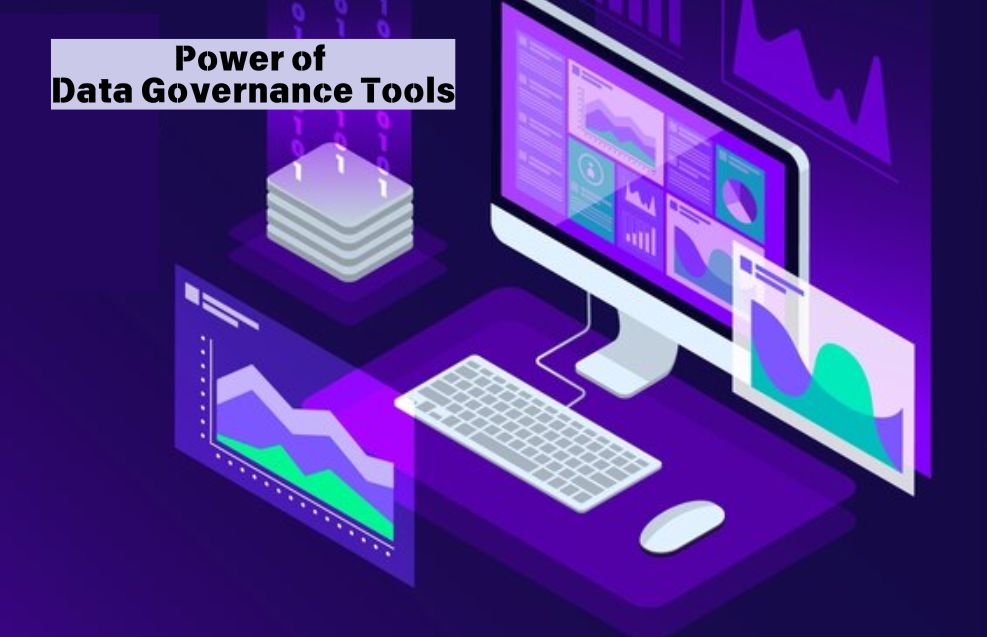In today’s data-driven world, effective data management is no longer optional. Organizations are increasingly investing in data governance tools to streamline operations, ensure regulatory compliance, and improve decision-making. These tools serve as the backbone for managing data integrity, security, and accessibility. This blog explores various facets of data governance tools, including their strategies, frameworks, certifications, consulting opportunities, and job prospects.
Understanding Data Governance
Data governance is the practice of managing data assets to ensure they are accurate, secure, and accessible. It involves defining policies, establishing frameworks, and implementing tools to maintain data quality and regulatory compliance. Here’s a deeper dive into its essential components:
1. Data Governance Strategy
A data governance strategy outlines the roadmap for managing data as a valuable business asset. It aligns data management practices with organizational objectives, ensuring that data supports decision-making and drives growth. A successful strategy involves:
- Defining Objectives: Clear goals such as improved data quality, enhanced security, or regulatory compliance.
- Establishing Roles and Responsibilities: Assigning data stewards, analysts, and governance leads to manage different aspects of data.
- Creating Metrics: Key performance indicators (KPIs) to measure the effectiveness of governance initiatives.
- Leveraging Tools: Platforms like Collibra or Alation to automate governance processes.
2. Data Governance Framework
A framework acts as a blueprint for implementing and sustaining data governance within an organization. It includes:
- Policies and Standards: Guidelines on data usage, storage, and security.
- Processes: Standard operating procedures (SOPs) for data handling.
- Technology Integration: Tools for data cataloging, lineage tracking, and quality assessment.
- Stakeholder Engagement: Ensuring buy-in from executives, IT teams, and end-users.
Read Also : How Can Data Profiling Transform Your Data Management Strategy?
Key Data Governance Tools in the Market
1. Collibra Data Governance
Collibra is a leading data governance platform designed to empower organizations with:
- Data Stewardship: Facilitates collaboration across teams by providing a central platform for managing data responsibilities.
- Metadata Management: Enables users to understand the context, source, and lineage of their data.
- Compliance: Automates adherence to regulatory standards like GDPR, HIPAA, and CCPA.
- Analytics and Insights: Offers advanced reporting capabilities to monitor data governance initiatives.
Collibra’s intuitive interface and scalable solutions make it a top choice for enterprises looking to establish a robust governance framework.
2. SAP Master Data Governance (SAP MDG)
SAP MDG is a specialized tool designed to manage master data across large enterprises. Its features include:
- Centralized Data Management: Provides a single source of truth for master data.
- Data Quality Controls: Ensures data accuracy and eliminates redundancies through automated validation.
- Integration: Seamlessly connects with other SAP and non-SAP systems.
- Scalability: Adapts to the growing needs of global businesses.
SAP MDG is particularly well-suited for industries with complex data landscapes, such as manufacturing, retail, and finance.
Certifications in Data Governance
Certifications validate your expertise in data governance tools and strategies, making you a valuable asset to any organization. Some of the top certifications include:
1. Collibra Certification
This certification demonstrates proficiency in using the Collibra platform. It covers:
- Data cataloging and lineage.
- Workflow creation and management.
- Compliance automation.
2. Certified Data Management Professional (CDMP)
Offered by DAMA International, the CDMP certification provides a broad understanding of data management principles, including governance, architecture, and modeling.
3. DAMA-DMBOK Certification
Based on the Data Management Body of Knowledge (DMBOK), this certification focuses on:
- Core data governance practices.
- Metadata management.
- Data quality and integration.
4. Other Specialized Certifications
- ISACA’s Certified Information Security Manager (CISM)
- IBM Certified Data Architect
These certifications not only enhance career prospects but also equip professionals with the skills to tackle complex data challenges.
Master Data Governance
Master Data Governance (MDG) ensures that critical business data—such as customer, product, and supplier information—is consistent, accurate, and reliable. Key aspects include:
1. Data Consolidation
Combining data from disparate sources into a unified view, ensuring consistency across systems.
2. Standardization
Establishing rules and standards for data entry, storage, and usage to reduce errors.
3. Governance Policies
Defining policies to manage the lifecycle of master data, from creation to archiving.
Benefits of Master Data Governance
- Improved Decision-Making: Accurate data leads to better business insights.
- Operational Efficiency: Reduces redundancies and streamlines processes.
- Regulatory Compliance: Ensures data meets legal and industry standards.
Data Governance: MDM and RDM
1. Master Data Management (MDM)
MDM focuses on managing key organizational data to ensure consistency, accuracy, and availability. Features include:
- Data Harmonization: Eliminates duplicate records.
- Centralized Repository: Acts as a single source of truth.
- Quality Assurance: Ensures data meets predefined quality standards.
2. Reference Data Management (RDM)
RDM involves managing data used for categorization, such as country codes or industry classifications. Its benefits include:
- Standardization: Ensures consistent usage of reference data across systems.
- Accuracy: Reduces errors caused by outdated or inconsistent reference data.
Integrating MDM and RDM strengthens overall data governance and supports business operations.
Data Governance Policy
A data governance policy is a formal document that outlines principles, rules, and practices for managing organizational data. Key components include:
1. Ownership and Accountability
- Identifies data owners, stewards, and their responsibilities.
2. Access Control
- Defines who can access, modify, or share data.
- Implements role-based access management.
3. Data Quality Standards
- Establishes benchmarks for accuracy, completeness, and consistency.
4. Compliance Requirements
Regular updates to the policy are essential to address evolving challenges and technologies.
Data Governance Consulting
Organizations often turn to data governance consultants to:
1. Assess Current Practices
- Identify gaps in existing data governance frameworks.
- Conduct maturity assessments.
2. Develop Frameworks
- Design tailored governance frameworks that align with business goals.
3. Implement Tools
- Integrate advanced data governance solutions such as Collibra, SAP MDG, or Informatica.
4. Training and Support
- Provide ongoing training for teams.
- Offer support during the transition to new governance models.
Consultants play a pivotal role in enabling organizations to achieve data-driven success.
Job Opportunities in Data Governance
The rise of data-driven decision-making has led to a surge in demand for data governance professionals. Key roles include:
1. Data Steward
- Focuses on maintaining data quality and integrity.
- Collaborates with teams to implement governance policies.
2. Data Governance Analyst
- Develops and enforces governance frameworks.
- Monitors compliance with regulations.
3. MDM Specialist
- Manages master data to ensure consistency across systems.
4. Data Governance Manager
- Leads governance initiatives at the organizational level.
- Oversees policy development and implementation.
Geographic Hotspots
- United States: Tech hubs like Silicon Valley and Austin.
- Europe: Opportunities in regulatory-heavy industries like finance and healthcare.
- Asia-Pacific: Rapid growth in digital transformation initiatives.
Required Skills and Certifications
- Proficiency in tools like Collibra, SAP MDG, or Informatica.
- Certifications such as CDMP or Collibra Certified Expert.
- Strong analytical and communication skills.
Conclusion
Data governance tools are indispensable for organizations aiming to harness the full potential of their data. From platforms like Collibra and SAP MDG to certifications and consulting services, these tools provide the foundation for effective data management. By adopting robust strategies and frameworks, businesses can ensure data integrity, compliance, and operational efficiency.
Investing in data governance is no longer a choice but a necessity. With the right tools, policies, and expertise, organizations can unlock new opportunities and gain a competitive edge in the market. Start exploring data governance tools today to future-proof your data management strategy!

